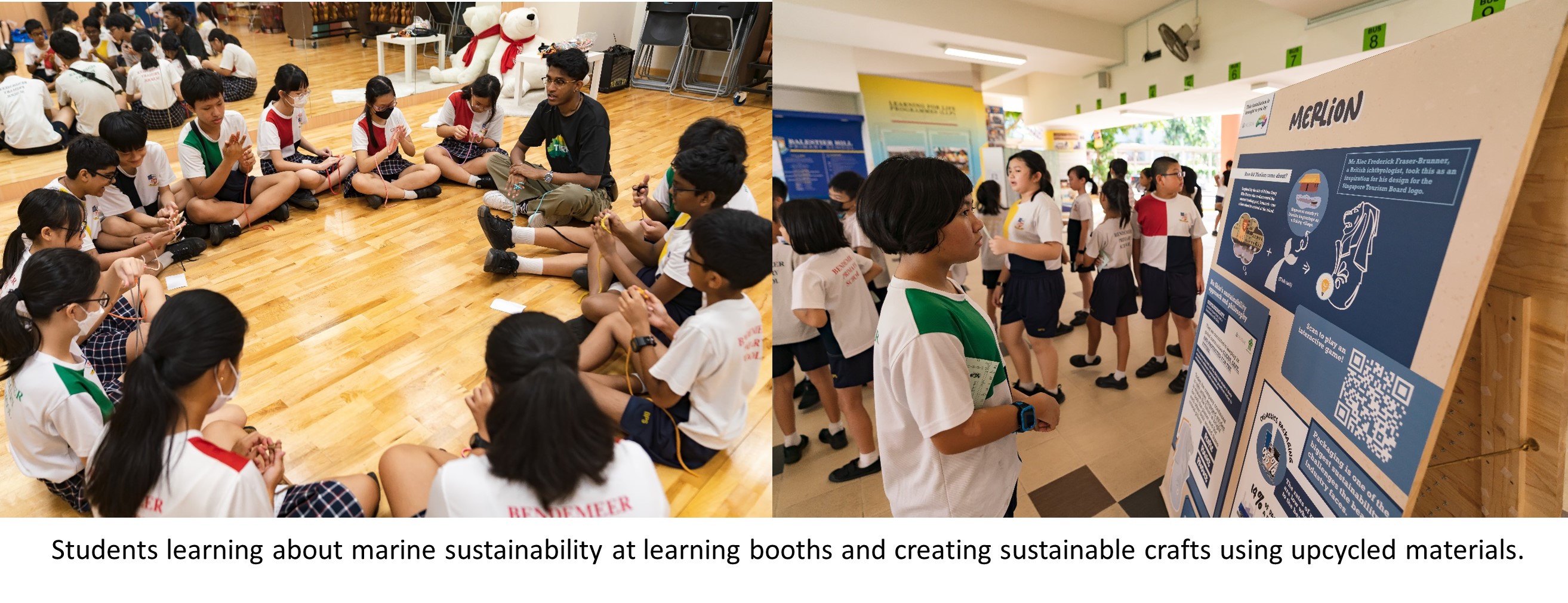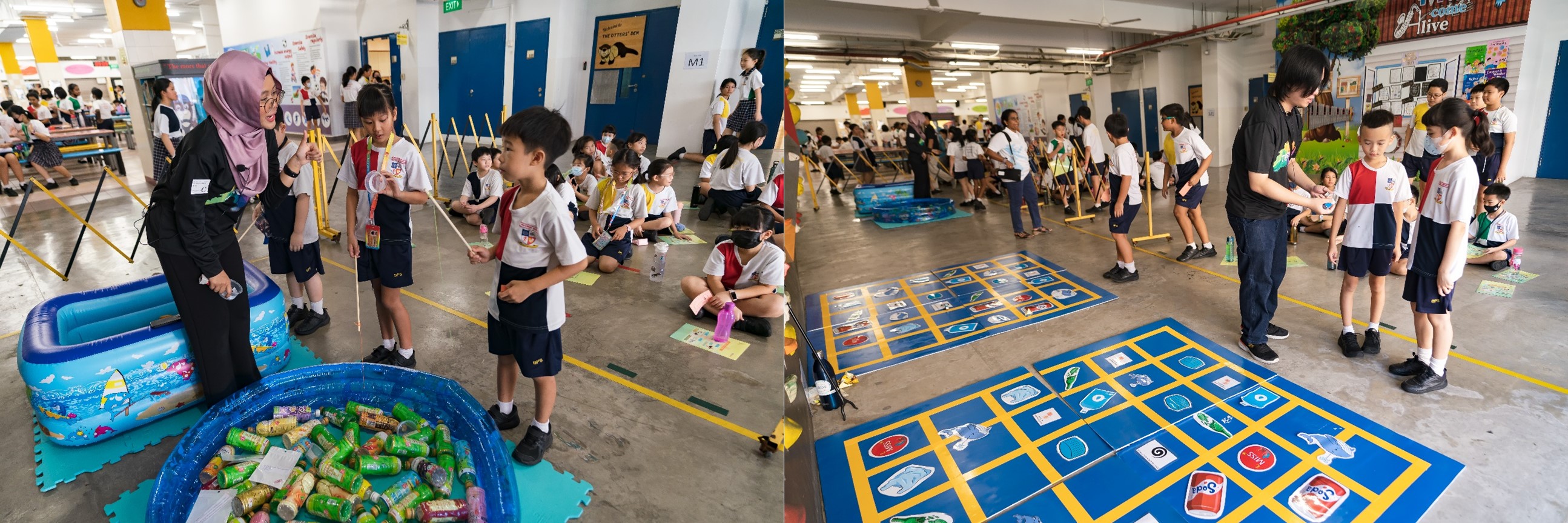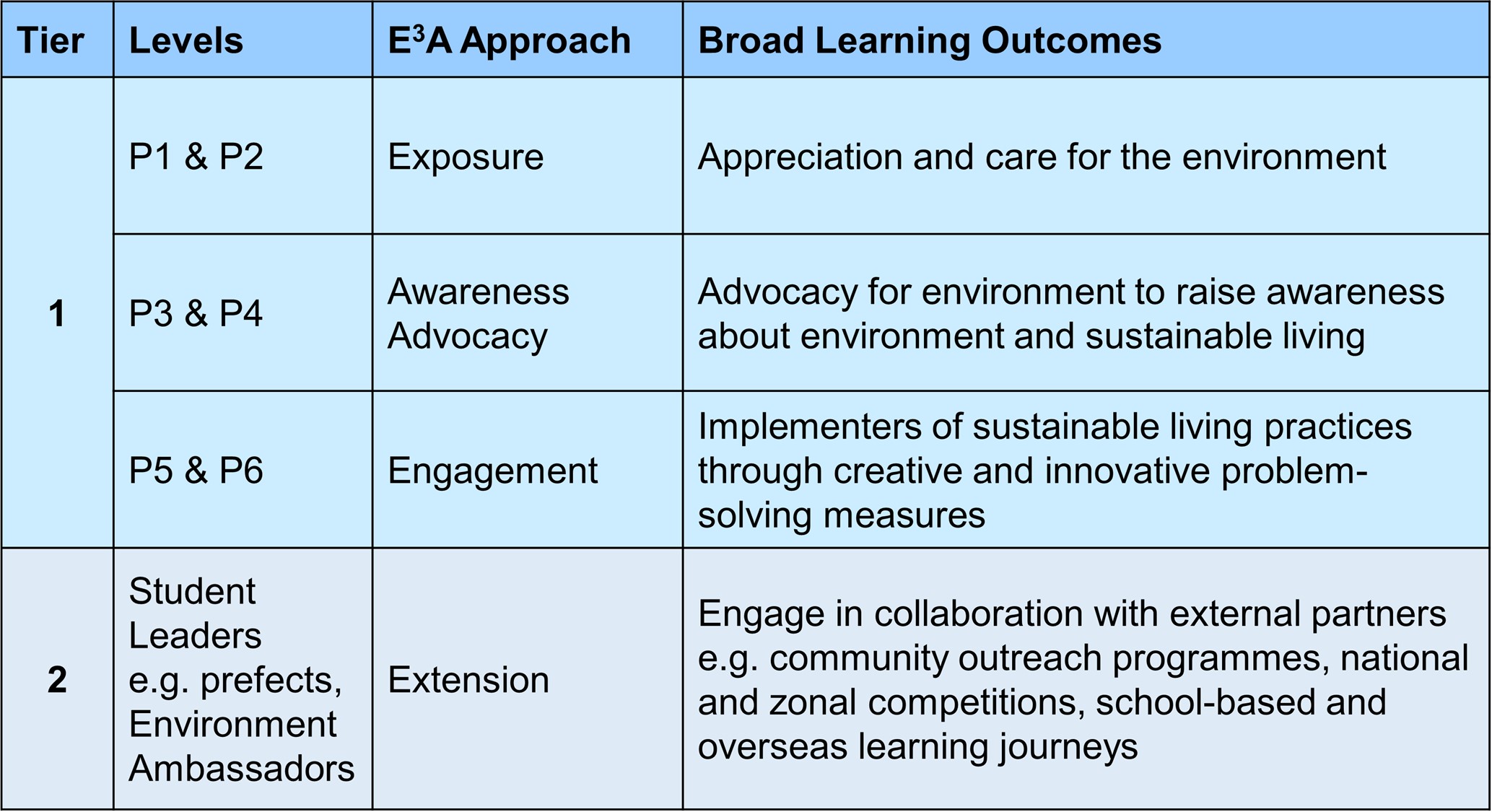Overview
Applied Learning Programme (ALP)
.jpg)
Value Proposition
Develop future-ready students
Nurture a gracious community of students
Educate our students to be environmentally conscious
Encourage our students to be proactive in adopting initiatives for sustainable
living and environmental education
At Bendemeer Primary School, we believe in developing future-ready students and equipping them with the dispositions and skills to help them embrace their future with confidence. It is our school’s vision and mission to nurture a gracious community of students who will make a difference in the lives of others. We recognize that this would include educating our students to understand the challenges and problems faced by the world today with regard to environmental issues. We want to encourage our students to explore and consider ways in which they can proactively play their part in being a part of the solution and adopting lifestyles for sustainable living and a healthier world.
Our Applied Learning Programme (ALP) – Environment Education & Sustainable Living@BPS (E2SL@BPS) aims to be the catalyst to ignite the interest of our students and provide them with environmental conservation knowledge and platforms for transfer and application of learning through real life problems and hands-on experiences. Based on E2SL@BPS, E2 (Environment Education) is to teach students on the impacts of man’s actions on the environment while Sustainable Living is to inculcate a lifestyle that attempts to reduce an individual’s or society’s use of the Earth’s natural resources and personal resources.
Through our ALP, our P2 to P6 students will use their knowledge gained about environmental issues to propose innovative ideas and solutions towards authentic problems faced by their community. It is our belief that they can be advocates for change and promote environmental conservation and sustainable living in their homes and communities.
Based on the school’s mission, vision and values, every Bendemeer student is a passionate learner who can learn and lead. Hence, E2SL will empower our students with the knowledge, values and dispositions to make environment friendly decisions for sustainable living. This programme is delivered to students through the E3A approach (Exposure, Engagement, Extension, Awareness & Advocacy), with a focus on Science, Technology, Engineering, Aesthetics and Mathematics (STEAM).
.jpg)
|
Lower primary students are inspired to love learning by: |
Middle primary students are encouraged to show empathy by: |
Upper primary students are encouraged to be adaptable and resilient in a VUCA world |
|---|---|---|
|
Brainstorming and exercising creativity in their designs using structured and unstructured materials |
Raising awareness of the impacts of waste(including food wastes)and its disposal on the environment |
Applying design thinking principles in formulating solutions to real-world problems |
|
Raise awareness on man’s action on animals making them endangered |
Promote sustainable-living through hydroponics, vertical gardening |
Exercising creativity and flexibility in the designing of solutions |
All students are given opportunities to ignite their curiosity about real-world problems in the areas of sustainable development and care for the environment. Through the design-thinking platform, students are encouraged to think inventively and come up with innovative and practical solutions to these problems. At the lower and middle primary, lesson packages are crafted with design thinking protocols built into them.
For upper primary, design thinking protocols are explicitly taught. To evaluate student’s learning in ALP, perception surveys will be administered to students at the end of each programme to gather feedback on their learning experience, identify the challenges faced as well as measure the skills and values acquired. E2SL@BPS learning is an interdisciplinary approach going beyond the boundaries of a classroom, leveraging on appropriate ICT tools to foster the joy of learning. The school will be conducting a number of learning journeys to places of interest with the infusion of environmental education. These LJs are interdisciplinary in nature, involving collaboration between different departments.
In line with our school’s mission: ‘Nurturing and inspiring students to love learning, lead confidently and make a difference in the life of others’, the Makers’ Innovation Lab was opened in 2022. It is a space that provides hands-on, creative ways to encourage students to design, experiment, build and invent as they deeply engage in science, engineering, and tinkering. Most of the subject matter revolves around Science, Engineering, Technology, Arts and Maths linking to the acronym STEAM (learning). As our school's Applied Learning Programme is focused on Sustainable Living & Environment Education, the activities that students experience in this lab will concentrate on tinkering projects that is aligned to this theme. In addition, this lab will also serve as a platform for student leaders to help their younger schoolmates. The latter is achieved with facilitation, guidance, and the peer coaching. An example is the P4 Recess Lego activity. The main objective activity is to allow students to use Lego resources to develop creative projects in line with environment education and sustainable living. In term 1 week 7, all English, Math, Science and PAM teachers in P1 to P5 attended a PD on Makers Education to learn how to facilitate a Maker activity using the various activities from the Maker’s cart.
The Maker’s Innovation Lab (Inside)
.jpg)
Staff PD in Maker Education & Facilitation of Maker’s Activity
.jpg)
|
.jpg)
|
.jpg)
|
Students from the Environmental Club involved in Maker Activity
.jpg)
.jpg)
.jpg)
Maker’s Lab Recess Activities
.jpg)
IFD collaboration between E2SL committee and SS unit where students created an upcycled bookmark for their friends in the Maker’s Innovation Lab during recess




Staff development
A school-wide design thinking training for all P5 teachers on design thinking
protocols is carried out to equip them with the necessary skills and knowledge
to facilitate the conduct of P5 ALP lessons.
E2SL committee members go for learning journeys to schools with ALP and
Maker Education to learn from their best practices.

